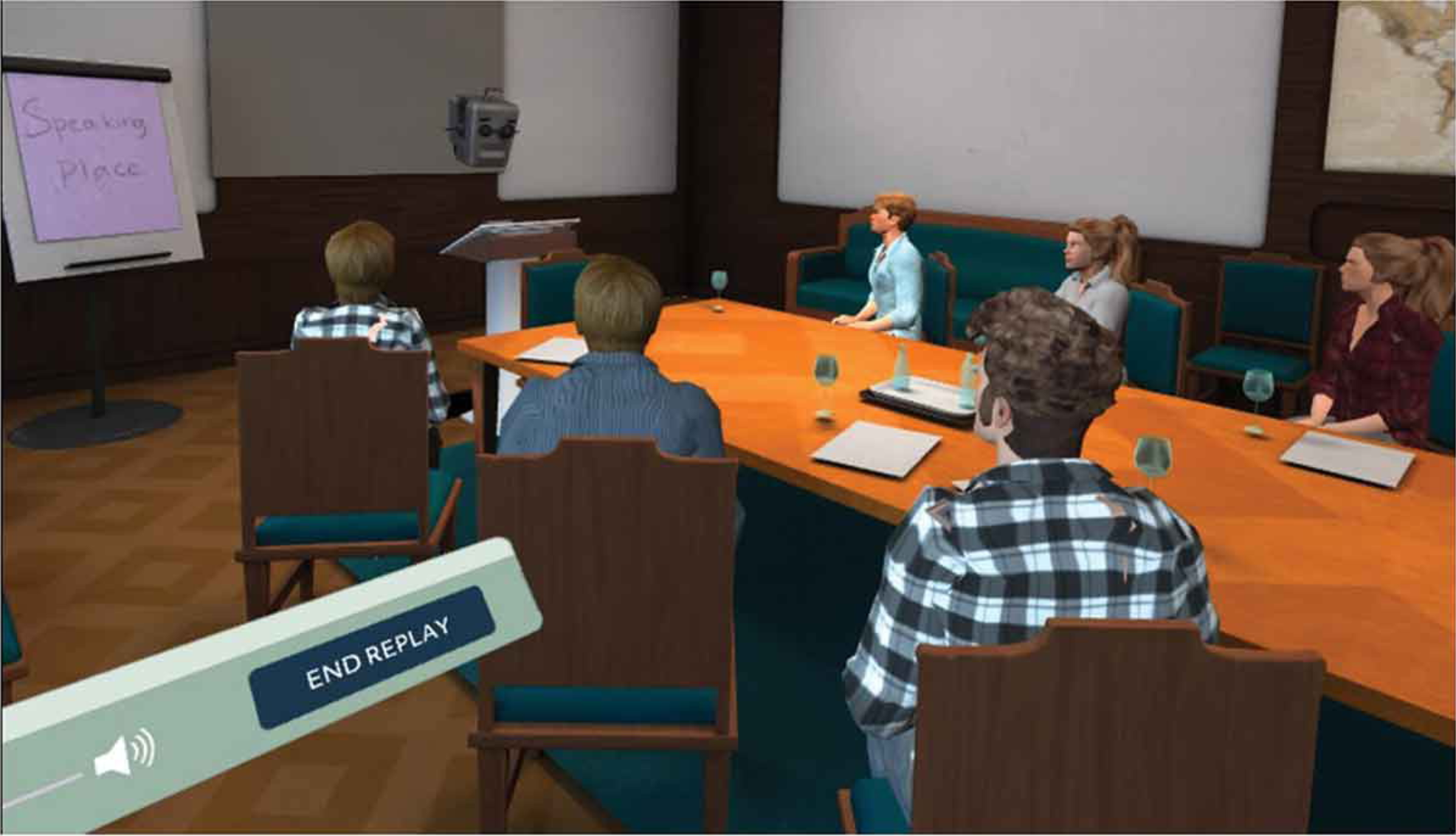Virtual Reality (VR) can be used as a therapeutic tool to conduct efficacious in-session exposure therapy by presenting virtual equivalents of phobic stimuli, yet past hardware restrictions hindered implementation in routine care and effectiveness studies. In the current study we examineed the effectiveness of a VR-assisted treatment protocol for public speaking anxiety with demonstrated efficacy, this time in routine care, using affordable VR hardware. Participants (n = 23) were recruited via a private clinic and treated by one of four psychologists with only minimal VR-training. Using a single-subject design and dual-slope modeling (adjusting the treatment-onset slope for treatment effects), we found a significant, large decrease in self-rated public speaking anxiety following the primary three-hour session, similar in magnitude to the previous efficacy trial. Multilevel modeling of in-session process measures suggests that the protocol works as intended, by decreasing catastrophic belief expectancy and distress, and increasing perceived performance quality. Adherence to the online transition program that followed—encouraging in-vivo exposure—was relatively poor, yet symptoms decrease continued. No change was observed over the three-month follow-up period. We conclude that VR exposure therapy can be effective under routine care conditions and is an attractive approach for future, large-scale implementation and effectiveness trials.
Read the full paper:
Lindner, P., Dagöö, J., Hamilton, W., Miloff, A., Andersson, G., Schill, A., & Carlbring, P. (2021). Virtual Reality exposure therapy for public speaking anxiety in routine care: a single-subject effectiveness trial. Cognitive Behaviour Therapy, 50(1), 67-87. doi:10.1080/16506073.2020.1795240
